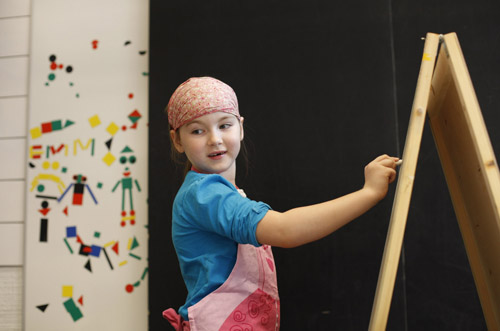
Le New York City arts en éducation Table ronde, une association membre entraîné des arts entités d'enseignement, a tenu sa 2012 Face to Face conference last week. Presentations were made on best arts practices in both domestic and international communities, qui comprenait des programmes réussis à Dallas au Texas, Venezuela, Ecosse et la Finlande.
Co-président Kati Koerner commenté, “These are places where they are thinking about arts education across entire nations. Given the fact that arts education access is still (malgré NYC ministère de l'Éducation Bureau des Arts et des efforts spéciaux de Projets) distribuée assez inéquitable dans notre 1700 écoles à New York, it is inspiring to hear that in other places every child has the opportunity to engage in hands on arts learning. That is a beacon for us. It makes us realize that we have a long way to go.”
I had the opportunity to have a more private “face to face” with conference participant Dr. Eija Kauppinen on the thinking behind arts education in Finland today and for the future. Dr. Eija Kauppinen has been Counselor of Education at the Finnish National Board of Education (the FNBE) depuis 2006. In the FNBE, elle est responsable des questions liées à la musique et la danse l'éducation, du préscolaire à la formation professionnelle.
Qu'est-ce que la Finlande fait actuellement en termes d'un programme d'arts dans l'enseignement de l'école primaire / secondaire et quels sont vos buts et objectifs à l'avenir?
Dans le système d'éducation publique finlandaise nous avons déjà une musique, arts visuels, et de l'artisanat éducation qui est obligatoire pour tous les élèves âgés 7 à 16. Cependant, cours de la dernière décennie, il ya eu beaucoup de pression (notamment de défenseurs des arts et d'autres experts) to further increase arts education in Finland. Our ministry of education established a working group in August, 2011 to draw up a proposal covering new general educational objectives in Finland. That proposal (Future of Basic Education) was published last Friday and aims to strengthen many areas including arts education, physical education, civic and citizenship education, education in environmental issues, and diversification of language teaching. The working group proposed increasing the number of required lesson hours in music, arts visuels, and crafts for all students (music from 7 à 8 heures par semaine, visual arts from 8 à 10 heures par semaine, and crafts from 11 à 12 heures par semaine). The extra hours will guarantee the availability of qualified teachers in the arts subjects. The proposal would also enable specialization in teaching arts. Our government now has to agree this proposal and issue the Government Decree on the General National Objectives and Distribution of Lesson Hours, and then the FNBE will draw up National Core Curricula for basic education.
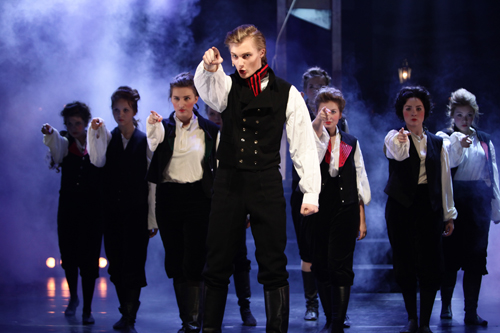
Can you explain how you will be able to get better qualified arts teachers by adding more hours to your curriculum? How many years do your teachers study before they are considered qualified?
We have two kinds of teachers in basic education: class teachers who teach in grades 1-6, and subject teachers who teach in grades 7-9. There has been a slight shortage of qualified subject teachers in grades 7-9, because there have not been enough lesson hours for full-time arts teacher positions in some schools. The situation has been the worst in music. I think that the working group’s idea has been that increasing the number of lesson hours may bring more full-time teacher positions, which may facilitate the recruitment of qualified teachers.
In Finland’s basic education system, all qualified teachers must have a Master’s degree. The Master’s degree can be completed in five to five and a half years from entry to college.
How do your teachers assess students studying the arts in the current system?
Teachers are responsible for pupil assessment. Pupil assessment is divided into assessment during the course of studies and final assessment. According to our national curricula, the tasks of assessment are to guide and encourage studying and to depict how well the pupil has met the objectives established for learning. The task of the final assessment is to define how well the pupil has achieved the objectives of the basic education syllabus in the different subjects.
Our national curricula include the criteria for final assessment in core subject areas and also in music, arts visuels, and crafts. Teachers have to assess the pupil’s performance with those criteria on the basis of diverse evidence. Par exemple, in music education we have eight criteria for different kinds of key competences in music, par exemple, the pupils will “master, as individuals, the basic technique of some rhythm, melody, or harmony instrument so as to be able to play in an ensemble” ou “know how to listen to both their own music and music produced by others, so as to be able to make music together with others.”
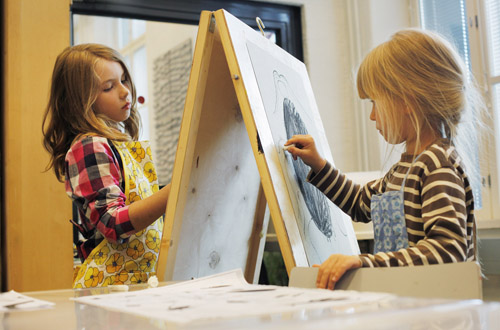
How do you see the impact of the arts on students’ personal development?
Première, arts subjects are essential if we think in terms of personal development. The arts are essential tools to increase self-awareness and understanding of your own and other’s experiences; the arts are a means to understanding emotions and the emotional aspects of life; the arts are also essential tools in self-expression.
Deuxième, if we want to promote our children’s creativity, the arts play an important role. Creativity should be part of teaching in all subject areas, bien sûr, but the arts are key for learning active problem solving and for understanding and learning creative processes.
En outre, in terms of students’ abilities in other subject areas, based on cognitive studies, it seems that the arts promote our capability to learn other subject areas too. Par exemple, learning music in early childhood seems to develop one’s linguistic capacity. (Please see the work of Minna Huotilainen at the University of Helsinki).
What other things do you believe need to be added to the current arts curriculum in Finnish schools?
The arts should be part of everyday life in schools and a part of the operational culture of our schools.
We need to draw up objectives for an arts education in such a way that it is able to foster the development of critical thinking skills, i.e. the ability to apply skills and knowledge, to analyze, to evaluate and to create.
En ce moment, the aim of our music education is to develop basic knowledge in music and skills in singing, playing instruments, and composing. We should continue to strengthen all these skills in the future, but what we should promote in particular is composing. To get children involved in composing is an excellent way to promote their creativity.
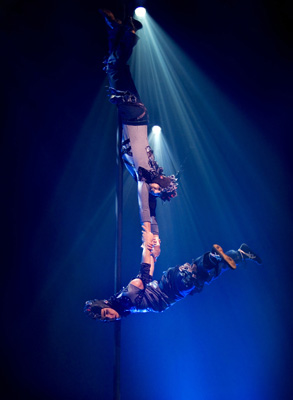
What is your perspective on arts education in the US today?
You have great teachers and great practices, but every child should have access to an arts education, which I understand is not the case everywhere. All children need a broad general education, including arts. You have excellent arts institutions and artists too, and have the opportunity to be a leader in arts education.
What did you learn in Face to Face 2012 about the state of the arts in the US?
I learned that you have excellent practices and practitioners in the field of arts education. We have always believed that the reason Finland is so successful in education is because we have excellent teachers. Cependant, what also matter are the resources (temps, les salles de classe, équipement, etc.). A high quality education is not only dependent on teachers’ personal characteristics; conditions matter too.
For more information on the NYC Arts in Education Roundtable
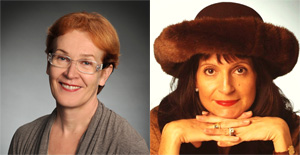
Photos gracieuseté de l'Association Arts finlandais de l'éducation de base pour les Arts, Sorin Sirkus, et le Dr. Eija Kauppinen.
Dans La Recherche globale pour l'éducation, joindre à moi et leaders d'opinion de renommée mondiale dont Sir Michael Barber (Royaume-Uni), Dr. Michael Bloquer (États-Unis), Dr. Leon Botstein (États-Unis), Dr. Linda Darling-Hammond (États-Unis), Dr. Madhav Chavan (Inde), Le professeur Michael Fullan (Canada), Professeur Howard Gardner (États-Unis), Professeur Yvonne Hellman (Pays-Bas), Professeur Kristin Helstad (Norvège), Jean Hendrickson (États-Unis), Professeur Rose Hipkins (Nouvelle-Zélande), Professeur Cornelia Hoogland (Canada), Mme. Chantal Kaufmann (Belgique), Professor Dominique Lafontaine (Belgique), Professeur Hugh Lauder (Royaume-Uni), Professeur Ben Levin (Canada), Professeur Barry McGaw (Australie), Professeur R. Natarajan (Inde), Dr. Denise Pape (États-Unis), Sridhar Rajagopalan (Inde), Dr. Diane Ravitch (États-Unis), Sir Ken Robinson (Royaume-Uni), Professeur Pasi Sahlberg (Finlande), Andreas Schleicher (PISA, OCDE), Dr. Anthony Seldon (Royaume-Uni), Dr. David Shaffer (États-Unis), Dr. Kirsten immersive, (Norvège), Chancelier Stephen Spahn (États-Unis), Yves Thézé (Lycee Francais US), Professeur Charles Ungerleider (Canada), Professeur Tony Wagner (États-Unis), Professeur Dylan Wiliam (Royaume-Uni), Dr. Mark Wormald (Royaume-Uni), Professeur Theo Wubbels (Pays-Bas), Professeur Michael Young (Royaume-Uni), et le professeur Zhang Minxuan (Chine) alors qu'ils explorent les grandes questions d'éducation de l'image que toutes les nations doivent faire face aujourd'hui. La recherche globale pour l'éducation communautaire page
C. M. Rubin est l'auteur de deux séries en ligne largement lecture pour lequel elle a reçu une 2011 Upton Sinclair prix, “La recherche globale pour l'éducation” et “Comment allons-nous savoir?” Elle est également l'auteur de trois livres à succès, Y compris The Real Alice au pays des merveilles.


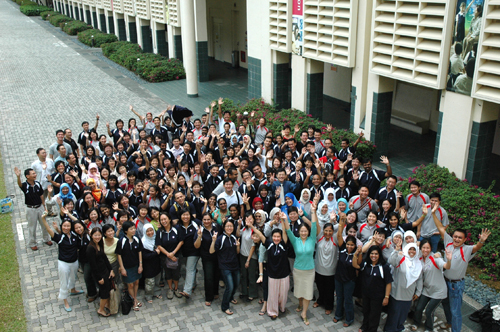
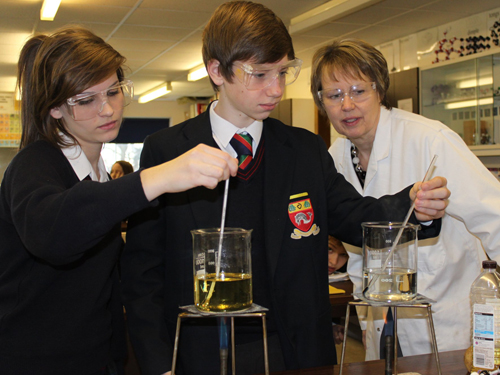
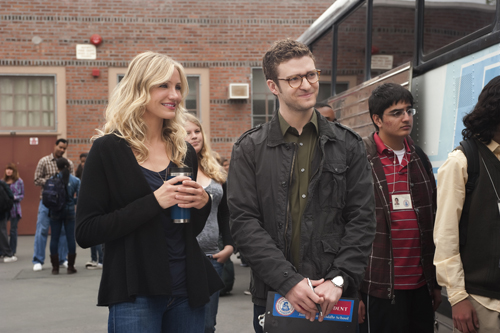
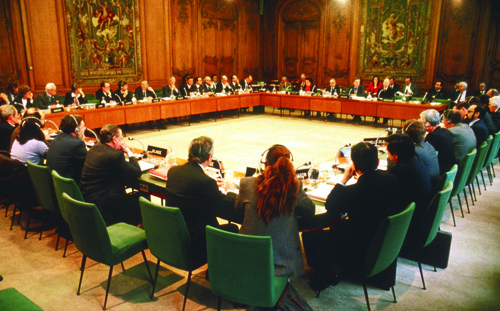
Commentaires récents